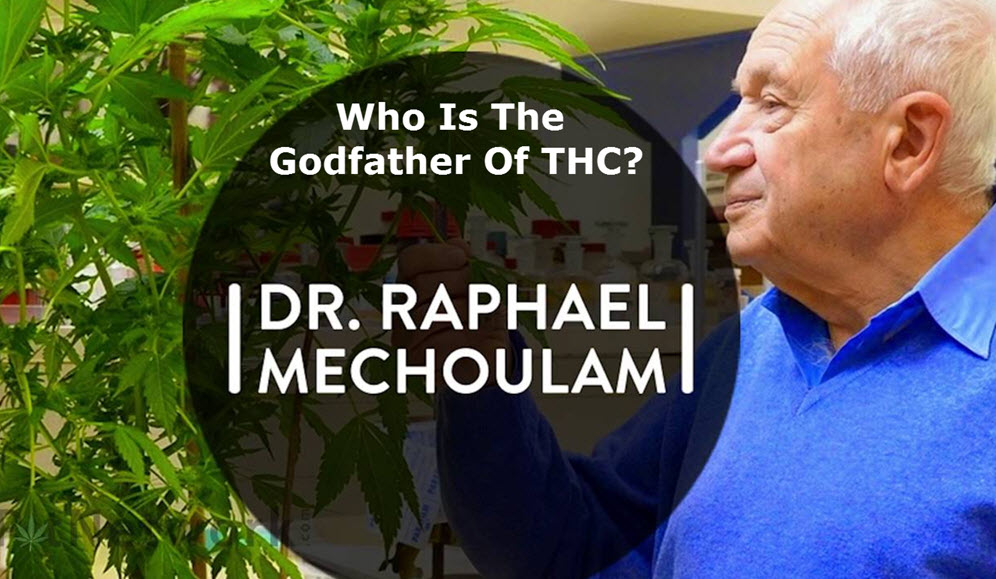How Cannabis Medicines Will Change with Dr. Mechoulam’s Latest Findings

Dr. Raphael Mechoulam is a renowned name within the cannabis industry. He was the first researcher to synthesize THC and sub sequentially discover the Endocannabinoid system. Since them, he has conducted numerous clinical trials using THC, CBD and other cannabinoids.
Recently, Dr. Mechoulam made headlines again when he announced that he and his team have found a way to synthesize stable cannabinoid acids. What this means for the medical cannabis world can radically change the way we approach cannabis-based medicines.
Why is it an important discovery?
Currently, all of the medicine and research relating to medical cannabis has been focused on cannabinoids, terpenoids, flavonoids, and so forth. We know that cannabinoid acids are more potent in its therapeutic effects, however, supply has been an issue.
Up until now, it was very difficult to gain access to cannabinoid acids because within the plant its very unstable. CBDa is 1000 times more potent than CBD. This suggests that it would have a far more profound medical benefits.
Dr. Mechoulam and his team, now able to synthesize stable cannabinoid acids is ready to start licensing to cannabis companies.
“This is exciting and unprecedented research. We have taken the unstable molecules of the cannabis plant and synthesized them to provide a stable consistent basis for researching new therapies across a wide range of medical needs – from CNS disorders to inflammation and many more. In addition, we have provided several delivery mechanisms including tablets, topical applications, and others to facilitate several processes. Our work is a catalyst for the development of potential new therapies long thought to have huge potential” – Dr. Raphael Mechoulam
Essentially, this means that in the near future researchers will have access to highly potent cannabinoid acids which they can utilize in a wide range of manners. The development of new medicinal applications, the efficacy of current cannabis-based medicines, and much more are bound to change in the sub sequent years.
How will this impact the medical cannabis world?
I have long said that the medical cannabis industry will evolve to look more like the pharmaceutical industry in terms of practice. The cannaceutical industry will revolutionize the way we use cannabis as a medicine, especially with billions of dollars being poured into it annually to create new therapies.
The addition of cannabinoid acids makes research far more reliable and will indefinitely speed up the development of new therapies. Considering that cannabinoids in its acid form is far more effective and potent, without the controversial “euphoria side effect”, it would speed up the time it takes to get the therapy through regulatory hurdles.
The effectiveness of future cannabis medications will be tailor-made for specific conditions and would be able to provide effective doses, something that currently isn’t firmly established within medical applications.
Consistency is key to being labeled as medicine, and when dealing with flower or cannabinoids, there is no way to accurately ensure that “X amount of cannabinoid” is in the mix. Usually, the extraction methods take whole plant extractions and then afterwards cannabinoid filtration.
With these synthetic cannabinoid acids, researchers would be able to create stable variables when developing new therapies. This will allow medical professionals to prescribe (in the future), dose-specific treatment options, catered to the specific medical condition.
For example, in the treatment of cancer, certain cannabinoids can help while others are not as effective For instance, CBD is quite potent in helping with certain kinds of breast cancer, whereas THC is more effective in treating certain kinds of prostate cancer.
Thus, having selective quantities of certain cannabinoids focusing on specific conditions will allow researchers to make therapies that provide the most benefit possible. It will also allow medical professionals to create measurable treatments based on particular conditions.
The Multi-Billion Dollar Cannaceutical Industry
Currently, we are still living in a world where “medical cannabis” is equated with flower; however, this will change over the next decade. The Cannaceutical industry will replace our current concept of medical cannabis and we can expect brand-name cannabis medicines on shelves.
This doesn’t mean that people won’t still resort to flower in treating ailments, however, the vast majority of patients will use cannabis-based medicines. In all likeliness, these cannabinoid acids will be a cornerstone of this new brand of cannaceuticals.
Government aid, such as MedicAid would also be more enthusiastic to enter into a regulated cannaceutical market due to the consistency of the medication. This will help millions of patients gain access to cannabis-based treatment options, providing an alternative to the pharmaceutical solution.
Don’t fear about the cannaceutical industry being the pharmaceutical industry, I personally believe it will become its competition. Especially, once we introduce psychedelic-based medications into the public space.
THE LEGEND OF DR. MECHOULAM CANNABIS PIONEER, READ THESE..
DR. RAPHAEL MECHOULAM, CLICK HERE.








